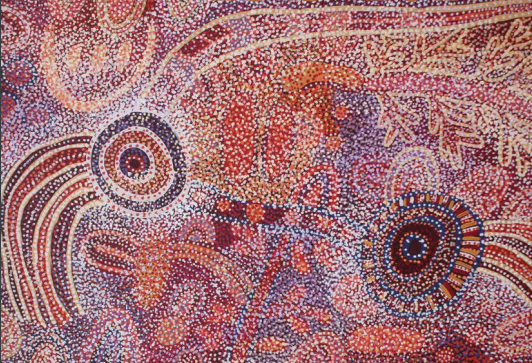Topic outline
-
Yara Nguturla Tampirrinthi (‘Recognising two-way knowledge together’) when supervising Aboriginal HDR candidates
This module focuses on supervising Australian Aboriginal Higher Degree by Research (HDR) candidates in a culturally appropriate manner. This can be achieved through recognising two-way knowledge together or Yara Nguturla Tampirrinthi in the local Kaurna language (the traditional lands and language of the Kaurna People include the Adelaide Plains of South Australia). Two-way knowledge engagement lies at the heart of supervising HDR candidates who are Aboriginal and Torres Strait Islander People (referred to further in this module as Aboriginal HDR candidates). Two-way engagement respects and values Australian First Nations’ knowledges, research approaches and ways of being of Aboriginal candidates. Thus, non-Aboriginal supervisors of Aboriginal HDR candidates need to become knowledgeable about the candidate and Aboriginal knowledges and perspectives.
This educational module for supervisors of Aboriginal HDR candidates is an important component of the University’s Aboriginal Research Strategy (ARS). The ARS aims to grow and strengthen Aboriginal research capacity through the development of a research environment characterised by 'two-way knowledge sharing, reciprocity, mutual respect and understandings, and life-long learning' (ARS 2019–2025, p. 13). The strategy aims to ensure that Aboriginal Peoples who partner with the University have confidence that it is a culturally safe research space. The module introduces and identifies a range of recommended strategies that may be valuable when supervising in this context.
Cultural competency for supervising Aboriginal HDR candidates is complex. It includes having respectful relationships with Aboriginal Peoples, recognising country, and learning about Aboriginal worldviews, Eldership and the centrality of community to Aboriginal Peoples. The module aims to enable non-Aboriginal supervisors new to supervising Aboriginal HDR candidates to become more knowledgeable about promoting two-way knowledge engagement in culturally appropriate and ‘comfortable’ ways.
The module’s objectives are that, as a result of completing it, supervisors will:
- recognise the importance of learning more about the ongoing impact of Australian colonial history on Aboriginal Peoples and Aboriginal knowledges, ways of being and doing research (see Section 2 'History and Aboriginal research knowledges')
- identify strategies to create and facilitate culturally safe supervisory spaces for Aboriginal HDR candidates (see Section 3 'Creating culturally safe spaces')
- develop culturally respectful dispositions which nurture reciprocity and relationships, mutual respect and understanding (see Section 4 'Culturally respectful dispositions')
- develop a detailed understanding of the key guidelines and protocols which govern the conduct of ethical Aboriginal research (see Section 5 'Guidelines and protocols governing Aboriginal research')
- develop insights into Indigenist and decolonising research methodologies (see Section 6 'Indigenist methodologies').
ArtworkAntara 2017 Acrylic on linen, 122 cm x 183 cm
Image courtesy the artist and Mimili Maku Arts University of South Australia Art Collection Artist
Artist: Ngupulya PUMANI (b. 1948 Mimili, South Australia Pitjantjatjara)
 Yara Nguturla Tampirrinthi
Yara Nguturla Tampirrinthi